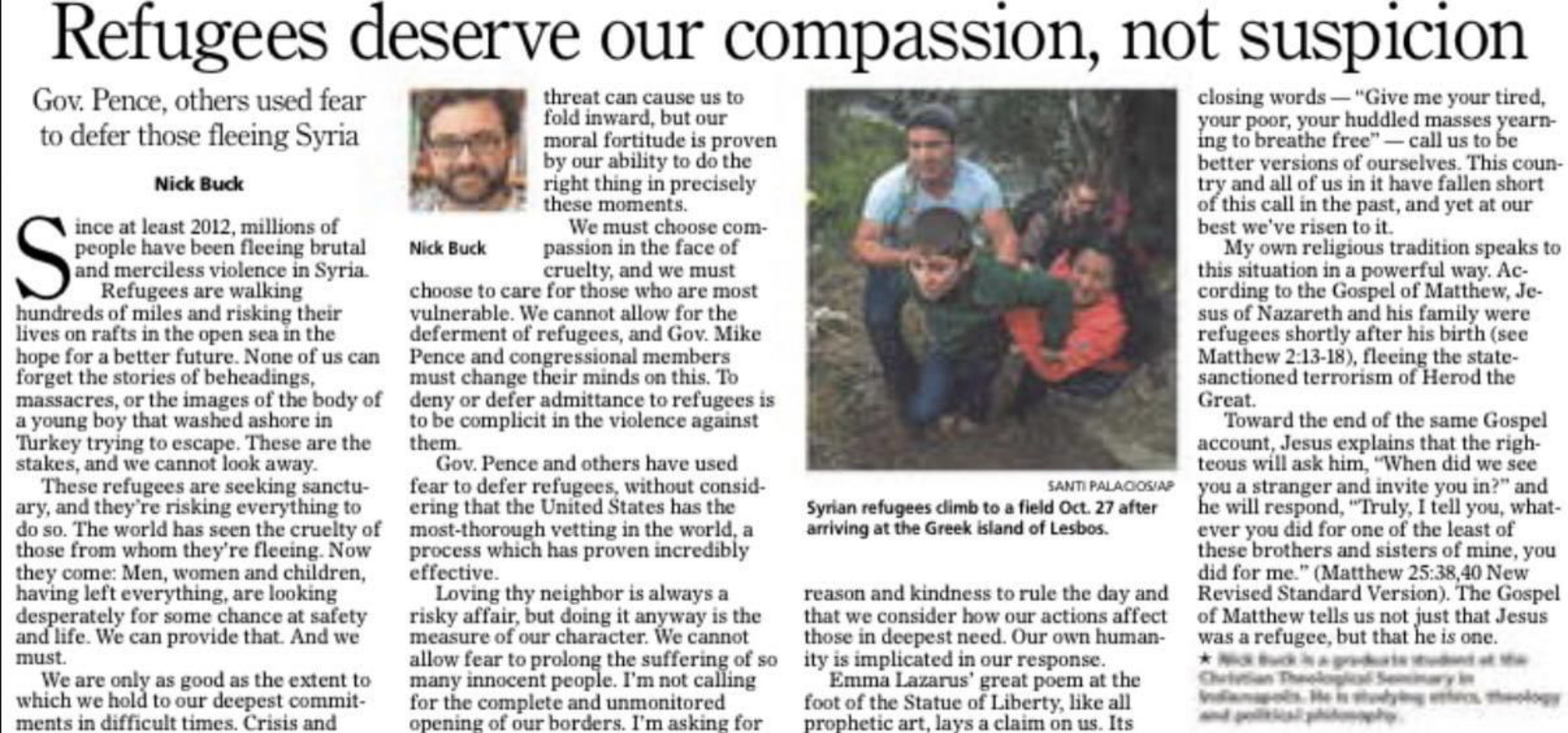”Refugees deserve our compassion, not suspicion”
Published in the “Faith & Values” section of The Indianapolis Star on December 13, 2015
FULL TEXT:
Since at least 2012, millions of people have been fleeing brutal and merciless violence in Syria.
Refugees are walking hundreds of miles and risking their lives on rafts in the open sea in the hope for a better future. None of us can forget the stories of beheadings, massacres, or the images of the body of a young boy that washed ashore in Turkey trying to escape. These are the stakes, and we cannot look away.
These refugees are seeking sanctuary, and they’re risking everything to do so. The world has seen the cruelty of those from whom they’re fleeing. Now they come: Men, women and children, having left everything, are looking desperately for some chance at safety and life. We can provide that. And we must.
We are only as good as the extent to which we hold to our deepest commitments in difficult times. Crisis and threat can cause us to fold inward, but our moral fortitude is proven by our ability to do the right thing in precisely these moments.
We must choose compassion in the face of cruelty, and we must choose to care for those who are most vulnerable. We cannot allow for the deferment of refugees, and Gov. Mike Pence and congressional members must change their minds on this. To deny or defer admittance to refugees is to be complicit in the violence against them.
Gov. Pence and others have used fear to defer refugees, without considering that the United States has the most-thorough vetting in the world, a process which has proven incredibly effective.
Loving thy neighbor is always a risky affair, but doing it anyway is the measure of our character. We cannot allow fear to prolong the suffering of so many innocent people. I’m not calling for the complete and unmonitored opening of our borders. I’m asking for reason and kindness to rule the day and that we consider how our actions affect those in deepest need. Our own humanity is implicated in our response.
Emma Lazarus’ great poem at the foot of the Statue of Liberty, like all prophetic art, lays a claim on us. Its closing words — “Give me your tired, your poor, your huddled masses yearning to breathe free” — call us to be better versions of ourselves. This country and all of us in it have fallen short of this call in the past, and yet at our best we’ve risen to it.
My own religious tradition speaks to this situation in a powerful way. According to the Gospel of Matthew, Jesus of Nazareth and his family were refugees shortly after his birth (see Matthew 2:13-18), fleeing the state-sanctioned terrorism of Herod the Great.
Toward the end of the same Gospel account, Jesus explains that the righteous will ask him, “When did we see you a stranger and invite you in?” and he will respond, “Truly I tell you, whatever you did for one of the least of these brothers and sisters of mine, you did for me” (Matthew 25:38, 40 New Revised Standard Version). The Gospel of Matthew tells us not just that Jesus was a refugee, but that he is one.
